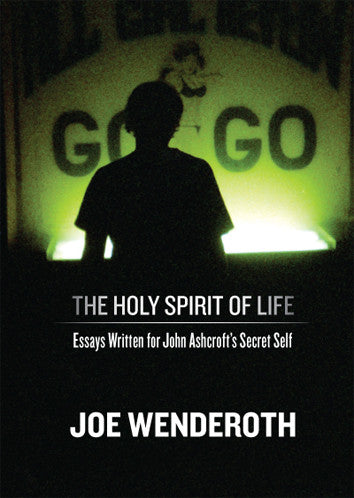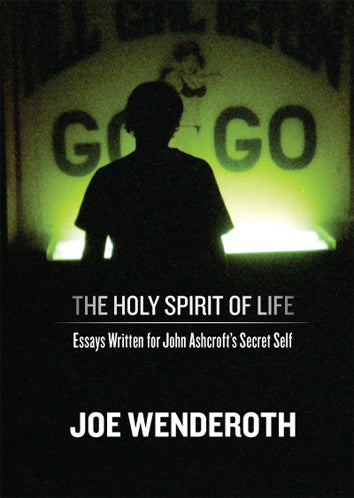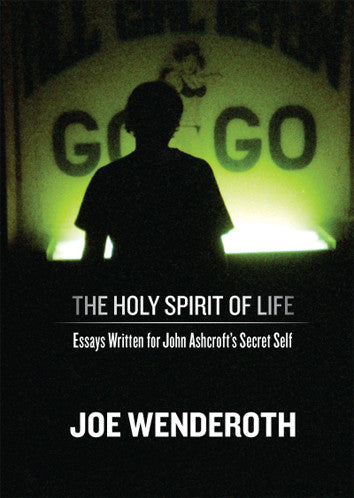
The Holy Spirit of Life
The Holy Spirit of Life
-
Wenderoth moves from outrageous premises to piercing insights in his follow-up to Letters to Wendy’s. The bold and surprising imagination of Joe Wenderoth is everywhere present in these essays moving fluidly between aesthetics, obscenity, American culture, and the craft of poetry. Fans of his previous work will be thrilled to find his uncompromising and inimitable sensibility on brilliant display.
-
Wenderoth’s Letters to Wendy’s (2000)—irreverent, witty prose poems written on comment cards from the eponymous burger chain—racked up unheard-of sales and made the young writer a poetry-world celebrity. Wenderoth’s first post-Wendy’s publication collects equally irreverent, equally biting and sometimes frankly sexual efforts in prose, along with a few poems and photographs: it shows his wit, and his desire to shock, undimmed. Individual essays explore the semiotics of Mayberry RFD and the phenomenology of Wile E. Coyote; reinterpret a poem of Sappho’s to describe a seizure; rewrite a poem by Robert Hass so that it describes junkies in Cleveland; invent new drinking games; and advise academic colleagues, “Be glad that in truth you are... not in control of what comes into your mouth.” ...disorientingly smart, and funny.
Publishers Weekly
In his new book, The Holy Spirit of Life, Wenderoth imbues essays with such concerned philosophical purpose (and drama) that the reader is led to believe in their deeper significance, and the tension between his earnest rhetorical choices and somewhat seriocomic tones and content leaves us laughing disturbingly.
James Wagner, Boston Review
Joe Wenderoth is “In”—in the sense that he is among the chosen. And the way he’s using that position is by trying to make himself, and his readers, as uncomfortable as possible with the very notion of “In-ness.” But he’s not iconoclastic for the sake of notoriety, or book sales. He’s trying to shake up a culture of apathy and complacency—a fraternal academia that is afraid to take risks, that churns out passable, yet mostly unaffecting, writers and critics. When approached openly, Wenderoth’s work is conscientious, unpretentious, unpredictable, and entertaining—especially in the wake of other poet-critics who, historically, make for rather austere or dyspeptic company.
Dean Gorman, Caffeine Destiny
Publication Date: November 1, 2005
ISBN# 9780974635378 (5.5x8 180pp, paperback)
Couldn't load pickup availability


